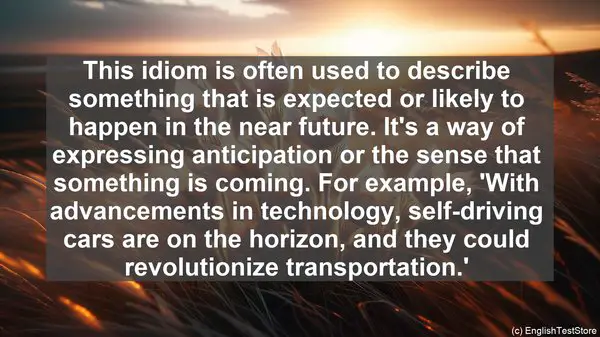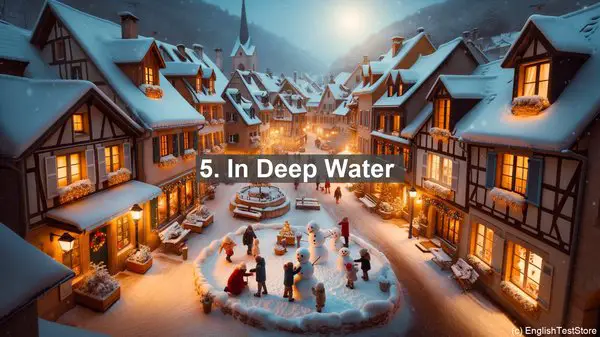Introduction: The Power of Idioms in Language
Hello everyone, and welcome back to our language series. Today, we have something special for all the geography students out there. We’ll be exploring the world of English idioms, specifically those related to geography. Idioms are not only fascinating but also an essential part of any language. They add depth and color to our conversations. So, let’s dive in and discover these top 10 idioms that every geography student should know.
1. In the Middle of Nowhere
This idiom is used to describe a place that is extremely remote or far away from any major city or town. It’s often used to emphasize the isolation or distance. For example, ‘The research station was in the middle of nowhere, surrounded by vast stretches of tundra.’
2. Off the Beaten Path
When we say something is ‘off the beaten path,’ it means it’s not a popular or well-known destination. It’s a way of expressing that a place is more secluded or less visited. For instance, ‘If you’re looking for an adventure, I recommend exploring the off the beaten path trails in the national park.’
3. A Drop in the Ocean
This idiom is often used to describe a small or insignificant amount in comparison to a much larger whole. It’s a way of emphasizing the vastness or scale of something. For example, ‘The funding we received was just a drop in the ocean compared to what we actually needed for the project.’
4. On the Same Wavelength
When two or more people are ‘on the same wavelength,’ it means they have a shared understanding or are thinking in a similar way. It’s a metaphorical way of expressing harmony or agreement. For instance, ‘During the group discussion, we realized that we were all on the same wavelength regarding the importance of sustainable development.’
5. In Deep Water
This idiom is used to describe a situation where someone is in trouble or facing difficulties. It’s often associated with being in a challenging or complex situation. For example, ‘After the unexpected landslide, the entire town was in deep water, trying to recover and rebuild.’
6. Between a Rock and a Hard Place
When someone is ‘between a rock and a hard place,’ it means they are in a difficult situation where they have to choose between two equally unfavorable options. It’s a way of expressing a dilemma or being stuck. For instance, ‘The government was between a rock and a hard place, having to balance economic growth with environmental conservation.’
7. Tip of the Iceberg
This idiom is often used to describe a small or visible part of something much larger or more complex. It’s a way of emphasizing that there is more to a situation than what meets the eye. For example, ‘The pollution we see in the river is just the tip of the iceberg. The real problem lies in the industrial waste being dumped upstream.’

8. In the Pipeline
When something is ‘in the pipeline,’ it means it’s being planned or developed and will happen in the future. It’s a way of expressing that something is in progress. For instance, ‘The new infrastructure project is still in the pipeline, but it’s expected to greatly improve transportation in the region.’
9. On the Horizon
This idiom is often used to describe something that is expected or likely to happen in the near future. It’s a way of expressing anticipation or the sense that something is coming. For example, ‘With advancements in technology, self-driving cars are on the horizon, and they could revolutionize transportation.’
10. A Whole New Ballgame
When we say something is ‘a whole new ballgame,’ it means it’s a completely different situation or scenario. It’s often used to express a significant change or shift. For instance, ‘Moving from high school to college is a whole new ballgame. The level of independence and responsibility is much greater.’

Conclusion: The Language of Geography
And there you have it, our top 10 English idioms for geography students. Learning these idioms not only enhances your language skills but also gives you a deeper understanding of the cultural and contextual aspects of geography. So, the next time you come across one of these idioms, you’ll be able to grasp its meaning and use it confidently. Keep exploring, keep learning, and until next time, take care!
